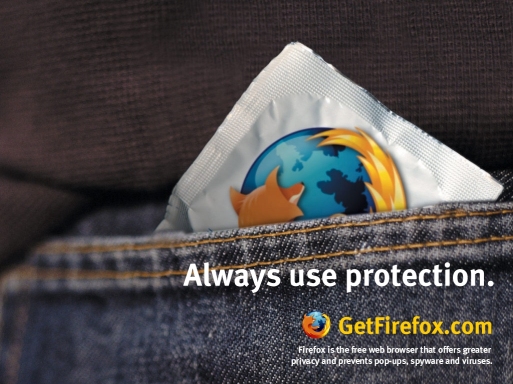How the good folks at Netscape finally beat Microsoft at their own Game
Internet Explorer is still alive. Some people still use it.
However, everyone “in the know” — including every geek you know (just ask them) — only uses the one real browser on the market. It’s called Firefox.
The most common reason we all use Firefox — besides the fact that it’s free — is that someone along the way pointed out to you that “it’s just so so much faster”. And “it doesn’t crash all the time”. And “it just works a lot better”.
What most people don’t know is… The Rest of the Story…
Ten years ago…
Netscape was the dominant browser. Even though it wasn’t free. It cost about $30 at that time. Netscape had 65 million users. It was huge. In fact, in the educational segment, it had a 90% market share, according to Netscape’s own accounts.
However, Netscape could clearly foresee what was about to happen.
Microsoft had developed their own competing browser based on the Mosaic license they had acquired in 1994. They called it Internet Explorer.
Now, Microsoft had just begun giving away their browser — for free — with the Windows operating system itself — ruthlessly wiping out any chance of competition in the browser marketplace. With the release of Windows 98, Internet Explorer 4.0 was included for free. (Mind you, Netscape had been a $30 product.)
Obviously, as a free product that was given away with every new computer and every copy of Windows, Internet Explorer was grabbing market share at a furious pace.
So, the good folks at Netscape saw that the end was, apparently, very near.
They decided… “If you’re going to destroy our ability to sell this excellent product, then we’ll just donate it to the world.” (my words, as imagined directed at Microsoft)
They decided to embrace, and become one of the earliest adopters of, the Open Source Movement. They announced to the world that they would publish the source code (computer jargon for, the ‘secret recipe’ for the program) for their flagship product — their newest Netscape web browser. This would mean that computer programmers and developers all over the world could study, dissect, and improve on, their browser product… Netscape… for free. (see the original Netscape press release from January 1998)
Then, just before Netscape was about to be gobbled up by the giant AOL…
The good folks at Netscape created a joint venture non-profit… with the fulltime staff of Netscape, and the development community. They called it, “Mozilla.org”, after Netscape’s original product code name, Mozilla.
Since then… Over the past ten years… Due to Microsoft’s forcing Internet Explorer on to every Windows user, Internet Explorer developed into a total monopoly in the browser market. This led to the worst period in web browsers’ history — where innovation was all but non-existent.
By 2003, the last of the good folks over at Netscape were all finally laid off… by AOL.
Meanwhile, however, that seed that the good folks at Netscape had planted… in January of 1998… was beginning to sprout.
The Tortoise and the Hare
The Netscape browser, which had been released to the public as an open source project, “Mozilla”, had evolved into “Phoenix”, then into “Firebird”, and then in 2004, it became “Firefox 1.0”.
Over time, just as in the fable of the tortoise and the hare… The open source project always wins out.
Today, “Firefox 2”, is the defacto standard. With Firefox’s 36.3% market share, it has now surpassed “Internet Explorer 7” with its only 21.0% market share, as of December 2007. source
So you see… the good folks at Netscape lost the battle… and they lost their jobs… But they appear to have won the war… in the end.
By the way, you’ll find an exactly parallel story unfolding in the history of Windows versus Ubuntu Linux. Now you can already predict who is going to win the war for your desktop operating system — the “Desktop Wars”. Now you know who to ‘put your money on’ in that race as well. You heard it here first.
In fact, you’ll see the same story repeating itself again with Sun Microsystems creating, and then spinning off as an open source suite of applications, OpenOffice Suite — the FREE version of Microsoft Office compatible software including Word, Excel, PowerPoint, Access, and even Adobe Illustrator and Visio. They even have free versions for Windows and Mac, as well as Ubuntu. (see OpenOffice.org)
Just as in the fable of the tortoise and the hare… Over time, the open source project always wins out.
~
If you liked this one, check out Today’s Top Stories — the most popular stories here. They’re listed in the right-hand column, just below the Subscribe buttons.
Also be sure to see… Other Topic Categories and Bruce’s Hot Lists…
Or you can also… continue reading… Related Items on this Topic
__________________
Bruce Wagner
http://brucewagner.com
http://brucewagner.com/blog
bruce@brucewagner.com
646-275-2195



I use both firefox and IE, and they both crash for (though firefox tends to store my session, which is super). I’d like to think both browsers benefit from the presence of the other. A competitive market is usually good for the users.
When it comes to the development of new technology, “competition” is not as simple a concept as meets the eye.
Corporate profits dictate that top-secret proprietary technologies are developed, and then guarded and hoarded all to itself. Sharing nothing. Collaborating with outside technology only when absolutely forced to — backed against the wall — by severe market demands.
Open Source, on the other hand, develops purely to be the best it can be — openly sharing everything it knows, and asking everyone for input to make it better — continuously. Forever.
Therefore, Microsoft, with it’s private proprietary Internet Explorer, competes with EVERYTHING and EVERYONE.
Whereas, Firefox, with it’s collaborative open source, community-developed technology sharing, competes only with itself…. to be the best it can be.
Do you see the difference?
When Internet Explorer was winning, Firefox was not hurt.
On the other hand, when Firefox totally wins out, Internet Explorer will be destroyed… since its’ existence is all about profit.
Open Source is not dependent upon profits.
Microsoft is.
In the coming months, you will be hearing a LOT about how the open source operating system, Ubuntu, is spreading faster than a wildfire, and quickly displacing Windows as the desktop operating system of choice — both at home, and in large corporate environments. Mark my words.
Ubuntu is being sold now on PCs at Walmart, Sears, and large manufacturers including Dell, and it’s being recommended for large corporate customers and small businesses alike, by the largest business players of them all — including IBM.
You heard it here first. : )
Could the ‘destruction’ of Internet explorer be bad for Firefox, eventually? Or are you suggesting that because it is open source and community developed, it will never benefit from a product to compete against?
“In the coming months, you will be hearing a LOT about how the open source operating system, Ubuntu, is spreading faster than a wildfire”
Minor nitpick.. I’m hoping this was a typo, because, as written, it suggests that Ubuntu is the *only* “open source operating system,” which is misleading. It’s certainly the most popular/well-known among non-geeks, though.
No. I didn’t mean to imply that Ubuntu Linux is the only open source operating system — not by a long shot.
However, it is the most popular by far — period. That’s why I’m saying that it’s the one you’ll “be hearing a lot about in the coming months”.
As for Firefix benefiting from competition, open source projects compete with each other — in a friendly cooperative way. They also compete with themselves in a way too.
No, I don’t believe that they need a leading commercial product to compete with, in order to continue to excell.